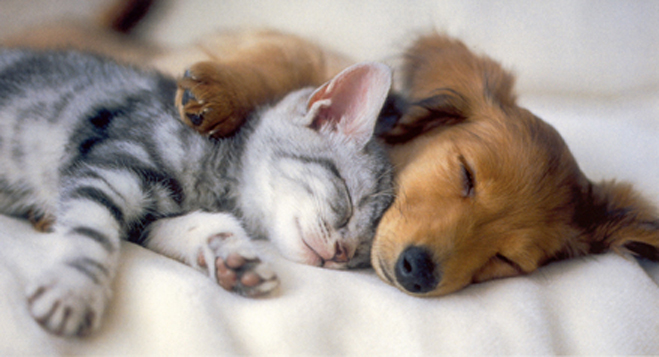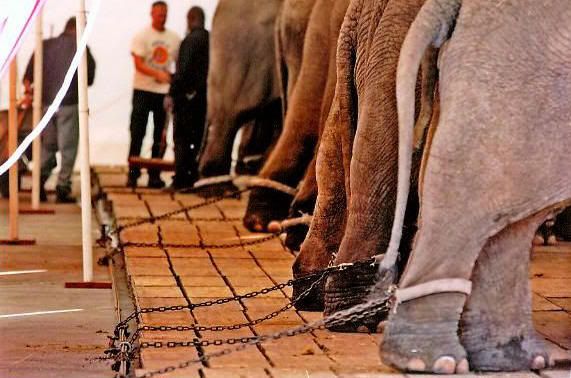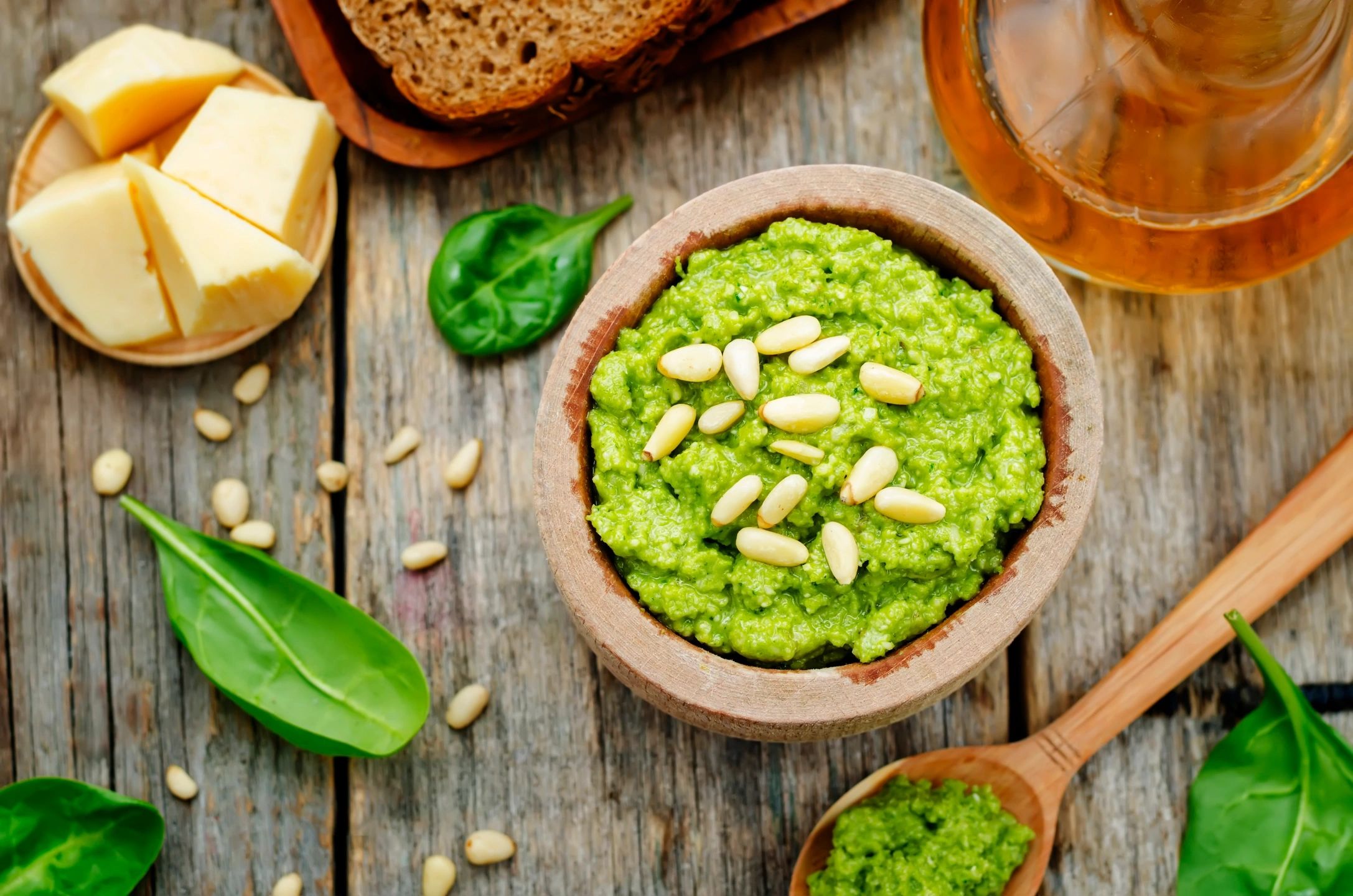Hey you, with your dog in pigtails and an “I heart cats” bumper sticker, Robyn Moore has something really important to share with you. This is the article we hope all our friends read, particularly the ones who find our stance on animal rights extreme, but love their dogs or cats like mad.

America is a nation filled with animal lovers, yet there are so many animals suffering right now under our animal-loving noses … in laboratories, circuses, zoos, puppy mills, shelters, slaughterhouses, and backyards and on fur farms and factory farms. Why the discrepancy? People love animals, but they like the taste of them more … they like leather shoes more … they like their animal-tested cosmetics more. People love animals only to the extent that they can still eat their flesh, wear their skins, use their bodies, confine them, and parade them around for entertainment (and to be clear, the means for which these are all obtained are often brutal and involve much misery). So maybe we should redefine the term “animal lover,” or better yet, those who claim to love animals should make today a turning point and end their support of industries that exploit animals:
- Don’t go to the circus, where miserable animals are trucked across the country in all weather extremes and forced—using bullhooks, whips, sticks, electric prods, and other weapons—to perform ridiculous, unnatural tricks. When not on stage in front of blaring crowds, they’re crammed into small cages or forced to stand chained to a pole for hours on end (sometimes days). Learn more about this here.
- Don’t go to the zoo, roadside or otherwise, where animals live lonely, stressed-out lives in small enclosures (nothing like they’d experience in the wild) behind fences, glass, or bars. In these animal prisons, animals are denied the fulfillment of every natural instinct and everything that is important to them. Learn more about this here.
- Don’t buy products tested on animals. Tens of millions of animals are poisoned, blinded, burned, and cut up in order to test cosmetics, food and beverages, household products, and personal care products. Animals who live in laboratories can spend years in small, barren cages, often in solitary confinement, in constant fear of their cage door opening for the next test, during which they’ll have toxic substances forced down their throat, rubbed onto their sensitive skin, or dripped into their eyes. Learn more about this here.
- Don’t eat meat, dairy, or eggs. More than 99% of the billions of animals raised for food in this country live on huge factory farms in filthy, overcrowded feedlots or crates and cages, which are often so small that they’re unable even to turn around or lift a wing. These sentient animals are deprived of everything natural to them and viewed and treated as nothing more than commodities. Learn more about this here.
- Don’t buy fur. Frustrated, stressed-out animals on fur farms live in tiny wire cages piled on top of one another, where they often go insane from the terrible conditions and confinement. To ensure that their fur stays intact, animals are killed by methods including suffocation, anal electrocution, and neck-breaking. Learn more about this here.
- Don’t go to rodeos, horseracing tracks, greyhound tracks, bullfights, or other venues where animals are exploited purely for entertainment. The frightened animals do not enjoy being whipped, lassoed, gored or chased, and running around hard tracks until the brink of exhaustion (sometimes death)—and then being discarded like a piece of trash when their usefulness as a crowd pleaser wears out—isn’t fun either. Learn more about this here.
- Don’t buy dogs from pet stores or breeders. In addition to forcing animals to endure the cramped, squalid conditions in puppy mills, where dogs are forced to breed year after year until their bodies give out, pet stores and breeders are irresponsibly contributing to the overpopulation crisis by bringing more dogs into a world that is already bursting at the seams with homeless dogs. Six to 8 million lonely dogs are sitting in shelters across the country desperately awaiting a loving home. And because people are buying from other sources, more half of these dogs must be euthanized due to a lack of available homes. Learn more about this here.
- Don’t buy wool. Millions of lambs undergo a painful procedure called “mulesing” that involves cutting the skin and flesh off their backsides—with nothing to dull the excruciating pain, leaving them bloody and raw. Then when their usefulness as wool producers ends, they are thrown onto overcrowded ships bound for the Middle East—many of them die en route due to the horrendous conditions aboard the ships. Learn more about this here.
- Don’t buy leather. Much of the world’s leather comes from India (it’s shipped to Europe and the U.S. without labels), where cows are hauled hundreds of miles across borders in tightly packed trucks and in suffocating heat (often given no food or water whatsoever). Many are too weak to stand, so workers rub hot chili peppers into their eyes and break the bones in their tails one by one in order to get them up and walking. Learn more about this here.
If you have any doubt that animals suffer in any of the industries mentioned above, take a closer look. Do your own research. Think about how these animals are trained, how they’re viewed and treated, their living conditions and the tremendous stress, frustration, loneliness, misery, and fear that they endure. Think about what their natural desires and needs are, and what their life would be like if they weren’t the property of these industries. Don’t assume that because everyone else is supporting it, it’s OK. That kind of thinking has gotten us into trouble in the past.
Bottom line: If you are an animal lover, show it. Live it. Vote with your dollars.
Robyn Moore is a writer, Mother, and creator of the NYC Vegetarian and Vegan Families Meetup group. It’s a place for families to gather and exchange ideas, and where veg kids can have fun without having to worry about what they can eat or participate in. It’s a group of families who are choosing to raise their kids humanely, according to the belief that animals are not here for our use, whether it be for our food, products, entertainment, or clothing.








